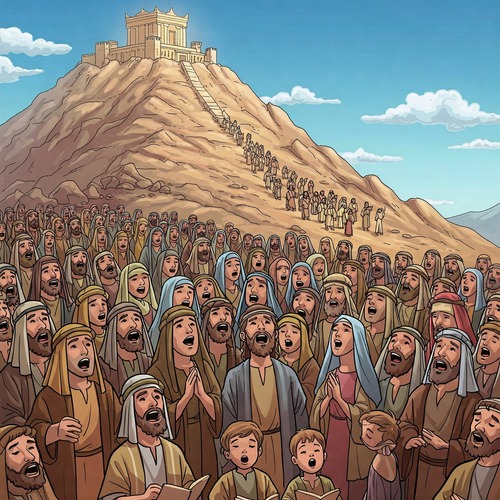Bribery and Corruption: What Do We Learn From the Bible?
Bribery and Corruption: Insights from Scripture
The Bible paints corruption as the antithesis of God’s perfect design for humanity and creation. When Adam and Eve sinned, their disobedience unleashed a wave of moral decay that has polluted our world ever since (Genesis 3). Corruption, described as “depraved” in Jeremiah 17:9, robs society of justice, righteousness, and trust.
Bribery as a Condemned Practice One of the clearest examples of corruption condemned in Scripture is bribery. Exodus 23:8 explicitly forbids it: “Do not accept a bribe, for a bribe blinds those who see and twists the words of the righteous.” Bribery distorts sound judgment, perverts justice, and grants unfair advantages. The prophet Isaiah rebuked those who “acquit the guilty for a bribe” (Isaiah 5:23).
Bribery subverts God’s moral order and standard for impartial justice (Deuteronomy 16:19). It erodes integrity and tramples on the poor and vulnerable. In the New Testament, Jesus condemned the religious leaders for being lovers of money, hinting at corrupting practices (Luke 16:14).
The Seriousness of Unchecked Corruption At its core, corruption rejects God’s sovereign authority over all areas of life. It caters to greed, dishonesty, and selfish ambition rather than operating with sincerity and truth (Joshua 24:14). Left unchecked, corruption infects society like “a little yeast working its way through the whole batch of dough” (1 Corinthians 5:6).
As salt and light, Christ’s followers are called to resist and expose corruption’s deadening influences (Matthew 5:13-16). We must be proactively modelling ethical behaviour that preserves justice and lives above reproach (Philippians 2:15). In governments, businesses, and daily living, upholding moral integrity honours God.
The Path of Righteousness While corruption promises empty shortcuts, God’s way leads to life, blessing, righteousness, and justice that will endure forever (Proverbs 16:8, 2 Peter 3:13). The remedy lies in repentance, renewal, and reliance on the Holy Spirit’s transformation to escape corruption’s snares (2 Peter 1:3-4).
As we align our lives to biblical ethics, generosity replaces greed, wisdom triumphs over foolish gain, and honesty rebuilds what sin has spoiled. Living with divine wisdom prevents the perils of illicit, underhanded behaviour (Psalm 119:104). Though the battle is arduous, God promises his blessing on those who abhor bribery and walk in obedient integrity (Psalm 26:10-12).
Related Reads:
Editor’s Pick
Does a Husband’s Faith Save His Family? Acts 16:31 Explained
"Believe in the Lord Jesus, and you will be saved, you and your household." This promise in Acts 16:31 has [...]

Did Jesus Die Too Soon? Was Pilate’s Surprise Unfounded?
Sceptics point to Jesus' relatively short time on the cross as evidence the Gospel accounts are unreliable. After all, when [...]

Shouldn’t the Book of Enoch Be In the Bible? Why Isn’t It?
The Book of Enoch has fascinated scholars, theologians, and curious readers for centuries. Mentioned in the New Testament and revered [...]

‘Out of Egypt I Called My Son’: Did Matthew Misuse Hosea 11:1?
When Matthew quotes Hosea 11:1 in his Gospel—“Out of Egypt I called my son”—he draws a connection that has puzzled [...]

Bible Allusions: How They Enrich Our Grasp of God’s Word
Ever experienced that moment when you're reading Scripture and suddenly recognise an echo of another passage? That spark of recognition [...]

Old Testament Theophanies: What Purposes Did They Serve?
Throughout the Old Testament, we encounter remarkable moments when God manifests Himself in visible, often tangible forms to His people. [...]

When Words Fail: How the Holy Spirit Helps Us in Our Prayers
Ever sat down to pray and found yourself at a complete loss for words? Or perhaps you’ve prayed diligently but [...]

Isaiah 64:6: How Are Our Righteous Deeds Like Filthy Rags?
“We have all become like one who is unclean, and all our righteous deeds are like a polluted garment.” — [...]

The Greatest Yet the Least: How Is John the Baptist Both?
In Matthew 11:11, Jesus makes a statement that has puzzled Bible readers: “Truly I tell you, among those born of [...]

The Pilgrim’s Progress: Journeying Through the Psalms of Ascent
The Psalms of Ascent (Psalms 120-134) are a remarkable collection of fifteen songs that have guided God's people for millennia. [...]






